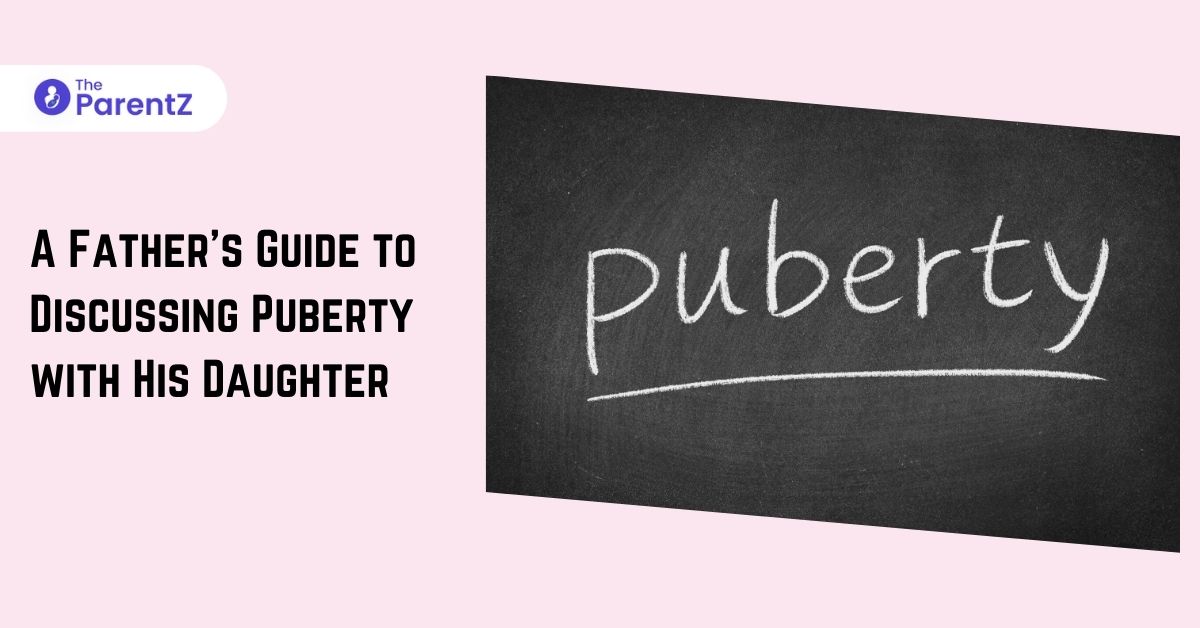The Period Talk is Not As Intimidating As it Seems if You Have the Right Knowledge
Society has a way of keeping sexuality- and puberty-related changes secret more effectively than the highest level of classified government information. Of course that’s an exaggeration and things today are way better than they were about a few decades ago, but the nitty-gritties of how to manage your period are still well beyond the average man’s reach even after he becomes a father.
Women’s sexual health is the mother of all taboos, so much so that even women themselves may not know everything they need to know to be safe and healthy. For a man to enter this realm of discussion is unthinkable even today, but fortunately, the internet has its plus points. Here are a few tips for fathers on how to talk to their daughters about periods and puberty.
Tips on How to Talk to Your Daughter about Puberty
Own the Responsibility
If you’re a single father who has a daughter to raise on his own, your first instinct will most probably be to ask your sister or some other female member of your family or your daughter’s social environment to do the honours instead of you. Remember that in doing this, you will only worsen the already powerful social stigma associated with periods and menstrual health among women. Moreover, you will have no control over what you daughter is told about this, how she feels about it, or what her approach to it will be for the rest of her life. Not only is that a huge missed opportunity for bonding between you and your daughter, but it is also a threat to your daughter’s chances of getting the right help when she needs it with respect to this in the future.
Don’t Feel Awkward
It’s important for you to come across as confident and casual when you’re talking to your daughter about periods because your attitude towards it will have a huge impact on the way she treats the issue for at least a few years in the beginning. Showing awkwardness or hesitation sends extremely unhealthy signals to a girl who’s around the right age for such a discussion. It will encourage her to refrain from talking about it unless she really has to, which usually means that she will wait for the situation to get really bad before approaching anybody for help. Whether she knows about periods beforehand or not, your daughter will most probably be aware of the stigma associated with it well before knowing anything about puberty itself. This alone makes your approach towards the topic quite critical.
Use Appropriate Terms, Even Diagrams If Needed
Depending on how old your daughter is and what socio-cultural background you’re a part of, she will most probably already have a certain vocabulary in place for the parts of her body. It’s important for you to use the correct words to refer to them while talking to your daughter about puberty even if the words she usually uses are different. Make sure she understands what’s called what and don’t shy away from using diagrams if you feel the need to use them in explaining things to your little girl. This is meant to ensure that there’s no miscommunication or misunderstanding if she tries to seek help from someone else at a later point in life. Additionally, it helps fight off the unfair stigma, too.
Cover Your Bases In Advance
If you’re doing things right, your daughter will have questions that she won’t hesitate to ask you during the course of this conversation or any future discussion that may take place. Make sure you’ve gathered a fair amount of detailed information on the basics such as the different types of pads and tampons, and the advantages and disadvantages of each. It’s not as tough as it sounds, a simple search on the internet should be enough to give you what you need.
Feel Free to Ask for Time
The questions children have sometimes leave even the best-informed parents stumped, so don’t get awkward or be too harsh on yourself if she asks you something you cannot answer. It’s okay to tell your daughter that you don’t know the answer to her question and ask her for some time to get back to her with an answer. Sometimes you may know the answer but you may not know of an appropriate way to frame it for your daughter. Feel free to tell her you’ll get back to her about it, and in either case, make sure you go back to her with an answer.
Consider Bringing in A Familiar Woman
If you find yourself unable to get rid of the awkwardness or if you feel like you may not be able to do justice to the conversation by yourself, consider asking a woman close to your daughter to join you both for this conversation. This is a good way to go in case you don’t have an appropriate answer to one or more of your daughter’s questions. However, make sure you take the lead even if a third person is a part of the conversation. Remember, it is highly critical to your daughter’s future sexual and menstrual hygiene and safety that she is able to communicate her problems openly to you. Also remember to ensure that you and any prospective “other woman” are on the same page about what’s going to be discussed, how and what words will be used, as well as hard boundaries beyond which you will not allow the discussion to go at least at the time.
Your Daughter’s Comfort is Most Important
If you need another woman to be there, make sure it is someone your daughter likes and approves of. Getting an unfamiliar woman to step up for this is just as good as asking an unfamiliar man to do it as far as your daughter is concerned. She’s likely to feel awkward even if you manage to shake it off, and the presence of a stranger makes things worse irrespective of the stranger’s gender.
Even talking to women their own age about periods and puberty can be challenging for most men. Holding this discussion with your own daughter is bound to be a difficult thing given the endless stream of social conditioning you’ve gotten used to. Remember, however, that you can save your precious little girl the pains of having to unlearn such burdensome and unnecessary social conditioning by making the best of this opportunity you have in the form of a discussion on puberty with your daughter. Kudos to your spirit if you choose to do this yourself!
Wishing you the very best!








Be the first one to comment on this story.